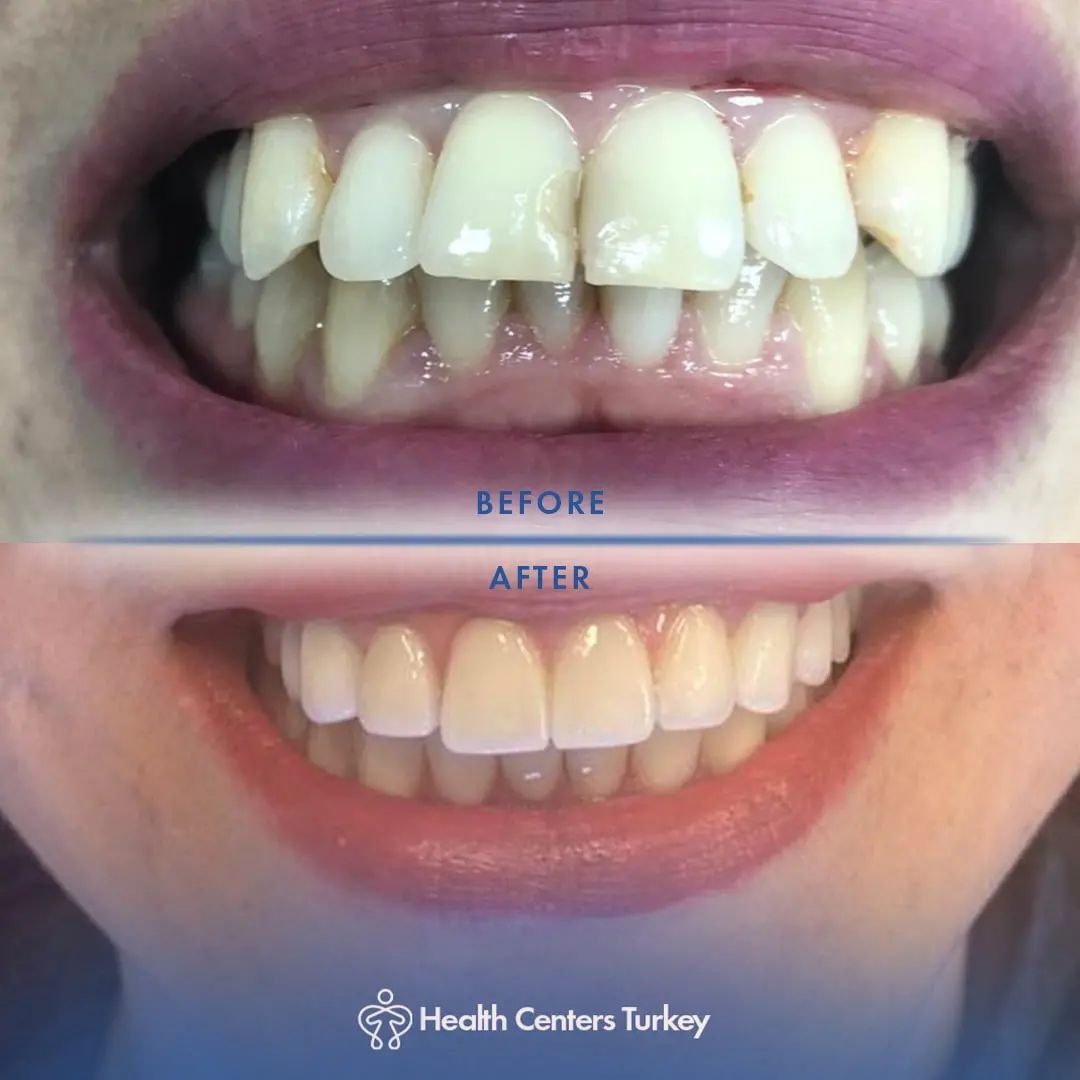Discover Top Dental Treatments in Turkey for Implants, Veneers, and More
Discover Top Dental Treatments in Turkey for Implants, Veneers, and More
Blog Article
Save Money on Dental Treatments in Turkey

Dental implants have turn into a focal point in fashionable dentistry, offering a dependable solution for these going through tooth loss. Among the a quantity of benefits they offer, one important aspect value considering is their impression on adjacent teeth. Understanding how dental implants affect surrounding teeth aids in making knowledgeable decisions about oral health.
When a tooth is lost, neighboring teeth can simply shift toward the area left behind. This movement can result in misalignment, which compromises the general bite and performance of the mouth. Dental implants mimic natural tooth roots, thereby sustaining the position of adjacent teeth.
Attain Your Desired Teeth Look with Expert Care at Turkey's Dental Clinics
The stability provided by an implant is essential, because it helps in preserving not just the bodily alignment but additionally the structural integrity of the jawbone. When a tooth is missing, the underlying bone can start to deteriorate because of lack of stimulation. An implant exerts pressure on the bone during chewing, just like a natural tooth, which promotes bone health.
In some circumstances, a bridge or partial denture could also be thought-about as a substitute for implants. While these options might restore some performance, they can place additional stress on neighboring teeth. Bridges often require submitting down the encircling teeth to accommodate the anchors, thereby affecting their health over time. Dental implants, then again, don't alter current teeth, making them a more conservative choice.
Unveiling the Best Oral Health Solutions from Turkey for Beautiful Smiles
Hygiene turns into one other critical factor when contemplating adjacent teeth in the context of implants. With dental implants, the individual can keep a daily hygiene routine similar to natural teeth. Flossing and brushing around the implant are straightforward, ensuring that the gum tissue remains wholesome and minimizing the chance of gum disease that could adversely have an effect on adjacent teeth.
Moreover, the materials utilized in dental implants are biocompatible. This means they're designed to combine nicely with the physique, reducing the chances of an adverse reaction. This attribute not only makes the implant protected but additionally protects nearby teeth from potential issues that could arise due to contamination or infection.
In terms of aesthetics, dental implants supply a natural appear and feel, intently resembling authentic teeth. Adjacent teeth profit from this aesthetic enchantment as nicely. When an implant is positioned, the encircling gum tissue may be formed to mimic natural contours, thereby enhancing the overall appearance of the smile. This aesthetic issue can encourage people to invest in their oral care routines, benefiting each the implants and adjacent teeth in the long term.
Exploring the Latest Trends in Dentistry in Turkey
Another concern is the potential for gum disease, which can have an result on the health of adjacent teeth. Gum disease can happen when plaque builds up round teeth and implants. Regular dental visits and appropriate oral hygiene can mitigate this concern. The presence of implants also can serve as a motivator for better dental hygiene practices, as people turn out to be more aware of sustaining their overall mouth health.
Studies have shown that dental implants can contribute to a major enchancment in quality of life. Patients typically experience elevated confidence and are less hesitant to smile or interact in social interactions. A healthy and well-maintained smile not directly promotes higher care for adjacent teeth, as individuals tend to turn out to be more conscious of their total oral hygiene.
One often-overlooked facet is the psychological impression of dental implants on sufferers. Knowing that implants offer long-term options can ease the anxiety associated with tooth loss. With fewer worries about future tooth shifts, sufferers usually tend to make investments effort and time into caring for their teeth, which includes adjacent teeth.
In conclusion, dental implants function more than only a answer for missing teeth; they play a pivotal role in sustaining the health and integrity find out of adjacent teeth. From preventing misalignment to selling gum health and enhancing aesthetics, the advantages are manifold. By opting for implants, people can not solely restore functionality but additionally foster a more healthy oral environment for surrounding teeth. The psychological and aesthetic advantages further contribute to an total enhanced quality of life.
Remarkable Dental Care Experiences for Travelers
In the long run, understanding how dental implants affect adjacent teeth can guide people in making empowered decisions concerning their dental health. The integration of these implants into the mouth acts as a stabilizing drive, safeguarding both the physical alignment and performance of neighboring teeth, while selling a long-lasting, healthy smile.
- Dental implants usually do not exert stress on adjacent teeth, maintaining their integrity and reducing the chance of shifting or misalignment.
- The placement of an implant typically encourages higher oral hygiene habits, positively influencing the health of adjacent teeth through improved cleansing practices.
Efficient Care Services for Time-Conscious Visitors
- In some circumstances, dental implants can stimulate the surrounding bone, which helps protect the natural teeth's position and general dental structure.

- The gap left by missing teeth can result in bone loss; dental implants can prevent this, thereby defending adjacent teeth from potential problems.
- Qualified Dentists Providing Trusted Care in Turkey
Holistic Dental Care Packages for Smile Transformation
- By restoring the function of a missing tooth, implants assist distribute chew forces evenly, decreasing wear and stress on neighboring teeth.

- Properly positioned dental implants can act as a assist structure, preventing unwanted motion of adjacent teeth ensuing from tooth loss.
- The presence of an implant could improve the aesthetic appearance of surrounding teeth by filling in gaps and supporting facial structure.
Transform Your Smile with Veneers
- Dental implants eliminate the need for adjacent teeth alteration, unlike bridges, which require reshaping the nearby teeth for support.
- Implants also reduce the risk of gum disease in comparison with different tooth replacement choices, not directly benefiting adjacent teeth by selling general oral health.
Effective Smile Alignment Solutions available in Turkey.
- Long-term success of dental implants is linked to the health of surrounding teeth, emphasizing the importance of regular dental check-ups and maintenance.
How do dental implants have an effect on adjacent teeth?
Trustworthy Orthodontic Treatments offered in Turkey
What are dental implants and how do they work with adjacent teeth?undefinedDental implants are synthetic tooth roots positioned into the jawbone to assist replacement teeth. They don’t affect adjacent teeth immediately, as they are unbiased constructions. Instead, they can help keep the integrity of surrounding teeth by stopping bone loss.
Can dental implants trigger damage to adjacent teeth?undefinedIf placed correctly, dental implants mustn't harm adjacent teeth. However, improper placement can lead to points like misalignment or pressure, emphasizing the significance of selecting an skilled dental skilled.
Will dental implants promote bone progress around adjacent teeth?undefinedYes, dental implants help stimulate the jawbone, which might encourage bone growth. This can profit adjacent teeth by sustaining bone density and stability in the space.
Comprehensive Dental Packages Featuring Implants
Should I fear about gum disease affecting adjacent teeth after getting an implant?undefinedGood oral hygiene is essential after getting an implant. Gum disease can still affect adjacent teeth, but a correctly maintained implant doesn't improve that risk. Regular dental visits can help monitor and maintain gum health.
What occurs to adjacent teeth if I lose a dental implant?undefinedIf a dental implant fails or is lost, adjacent teeth may shift as a outcome of adjustments in chew alignment and support structure. This may lead to misalignment or additional tooth loss if not addressed.
Are there any particular care requirements for adjacent teeth after getting implants?undefinedMaintaining good oral hygiene practices, including common brushing, flossing, and dental check-ups, is important for each dental implants and adjacent teeth to stop decay and gum disease.
The Growing Popularity of Dental Treatments
Do dental implants help assist adjacent teeth when chewing?undefinedAbsolutely. Implants can improve total chunk function, which might alleviate stress on adjacent teeth during chewing. This can additional reading result in higher distribution of forces, promoting oral health.
How can I prevent problems with adjacent teeth and implants?undefinedConsistent dental care, including skilled cleanings and examinations, regular brushing and flossing, and following your dentist’s aftercare instructions, are key to stopping problems.
Can adjacent teeth transfer if I even have a dental implant?undefinedAdjacent teeth may transfer if they don't appear to be well-supported, especially after tooth loss. A dental implant helps preserve the structure, reducing the chance of shifting teeth. Report this page